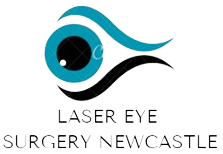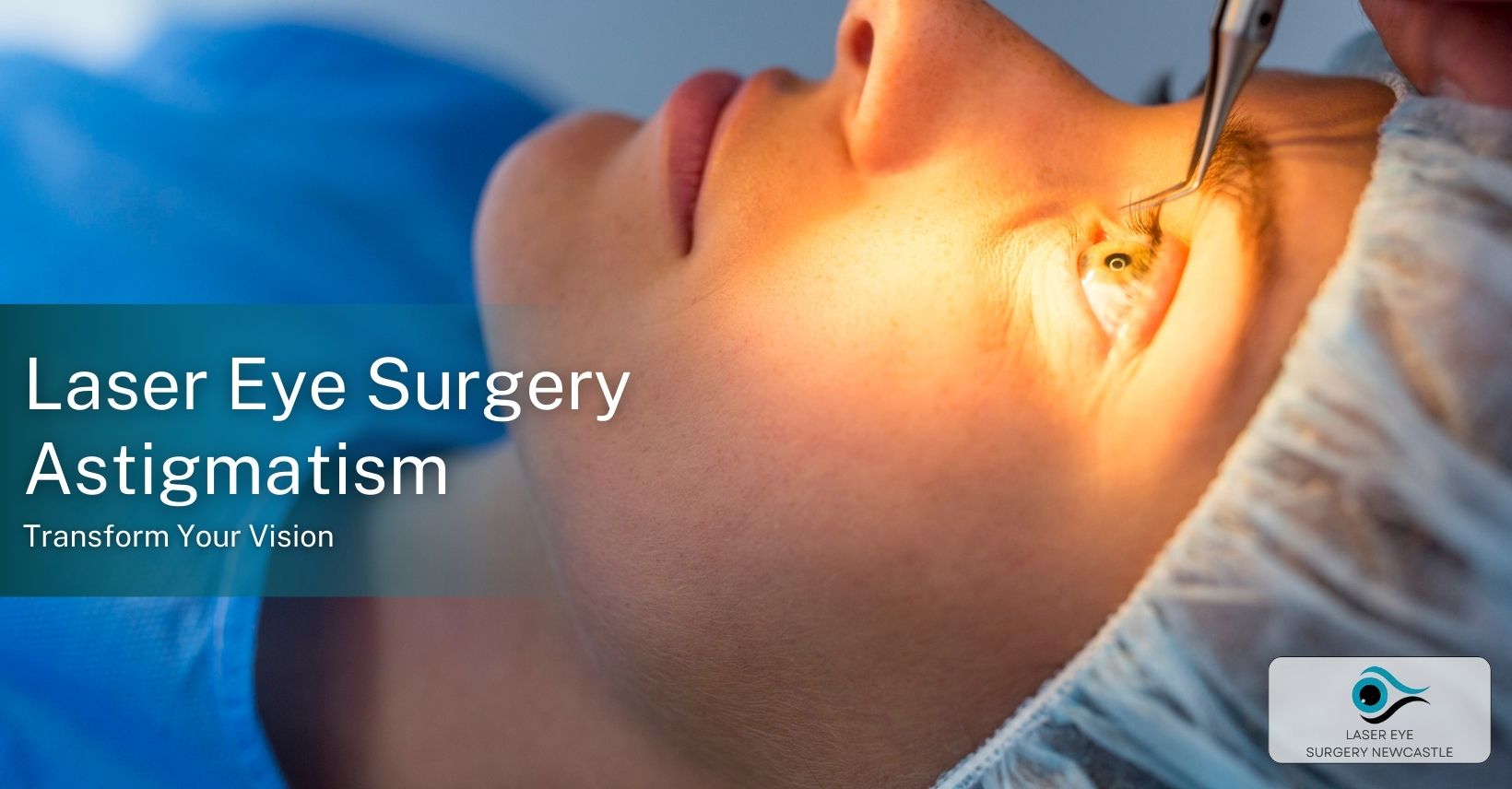Are you experiencing blurry or distorted vision due to astigmatism? Laser eye surgery might offer a clear solution to enhance your visual clarity.
We will dissect the nature of astigmatism, demonstrate how laser eye surgery astigmatism can amend it, and review the various surgical options available.
Additionally, we’ll identify the ideal candidates for this procedure and navigate through the preparation, process, and recovery phases.
The discussion will extend to evaluating the effectiveness, understanding the associated risks, considering the financial implications, and selecting the appropriate surgeon for your needs.
Learn how laser eye surgery can greatly improve your vision, leading to a life with reduced dependency on corrective lenses and a broadened perspective.
What is astigmatism, and how does it affect vision?
Astigmatism distorts vision when the cornea or lens is irregularly shaped, causing light to focus improperly on the retina. This misalignment can produce symptoms like blurred vision, headaches, and difficulty with night vision.
Effective diagnosis often involves a comprehensive eye exam, including corneal curvature measurements and light refraction assessments. Understanding all available options, such as laser eye surgery, can greatly improve visual clarity as treatments vary.
Can laser eye surgery correct astigmatism?
Laser eye surgery effectively corrects astigmatism by reshaping the cornea to correct its irregularities. Techniques such as PRK and LASIK remove or adjust corneal tissue, allowing light to focus correctly on the retina.
This surgery enhances visual acuity and diminishes dependence on corrective lenses. However, the effectiveness of laser surgery can vary based on the specific method used, leading us to explore the different types of procedures available.
What are the different types of laser eye surgery for astigmatism?
Laser eye surgery types for astigmatism include LASIK, SMILE, and LASEK/PRK, each customised to specific patient needs. The most common, LASIK, involves a flap and tissue reshaping for quick recovery.
SMILE and LASEK/PRK are flapless alternatives suitable for patients with specific corneal conditions. Understanding which type best suits a patient’s situation depends on several factors, including ocular health and prescription stability.
Who is a good candidate for laser eye surgery for astigmatism?
Candidates for laser eye surgery should have stable prescriptions, healthy eyes, and realistic expectations about the outcomes. Stability in prescriptions ensures accuracy in correction, while eye health must be assessed to avoid complications.
Addressing patient expectations helps manage outcomes, emphasizing that while significant improvements are likely, perfect vision isn’t guaranteed. Preparing for surgery is equally critical to its success.
Stable Prescription
A stable prescription is essential for laser eye surgery candidates, as fluctuating vision can affect the surgery’s outcome and long-term effectiveness.
Before undergoing laser eye surgery, it is essential to have a stable prescription to ensure accurate correction of vision problems. This stability gives the surgeon a clear guide on adjusting your eyes for optimal results.
When your prescription is consistent, your chances of achieving the desired visual acuity post-surgery increase significantly. Consistent measurements help determine the precise treatment needed, reducing the risk of overcorrection or undercorrection.
Healthy Eyes
Healthy eyes are another essential criterion for candidates considering laser eye surgery, as any underlying conditions can impact the safety and effectiveness of the procedure.
Issues such as dry eyes, glaucoma, cataracts, or retinal diseases can pose significant risks during or after the surgery. Therefore, it is important that opticians thoroughly evaluate the patient’s eye health before moving forward with the treatment.
Through a series of comprehensive tests and examinations, these professionals can identify any potential concerns that might affect the outcome of laser eye surgery. By managing existing conditions and ensuring optimal ocular health, opticians are critical in determining individuals’ eligibility for this vision correction procedure.
Realistic Expectations
Patients undergoing laser eye surgery should have realistic expectations about the outcomes, understanding that while the surgery can significantly improve vision, it may not achieve perfect eyesight.
Setting realistic expectations plays a vital role in the success of any surgical procedure. The surgeon can establish trust with the patient by being transparent about the potential outcomes, risks, and limitations.
Patients who have realistic expectations tend to have higher satisfaction rates post-surgery. They are more prepared for the recovery process. They will likely be satisfied if the results differ from what they envisioned.
During the consultation process, the surgeon must educate the patient about the possibilities and limitations of the surgery, ensuring that they have a clear understanding of what to expect.
How do I prepare for laser eye surgery for astigmatism?
Preparation for laser eye surgery involves consultations, health assessments, and adherence to pre-surgery guidelines, such as discontinuing contact lens use.
Comprehensive eye exams are important to customizing the surgical approach, ensuring alignment with the patient’s vision correction needs. As surgery day approaches, understanding the procedural details becomes essential.
What happens during the laser eye surgery procedure for astigmatism?
During the procedure, the surgeon reshapes the cornea using a laser, correcting the curvature to improve vision.
Techniques vary but typically involve corneal mapping, flap creation, and tissue adjustment. After surgery, recovery begins immediately to achieve optimal visual outcomes and patient comfort.
What is the recovery process like after laser eye surgery for astigmatism?
Recovery varies by individual but generally includes rest, medication adherence, and follow-up appointments. Postoperative care is important to avoid complications and ensure the healing process supports the desired vision improvements.
This care regimen extends into the healing timeframe, which can differ based on the surgical technique and individual healing rates.
Post-Surgery Care
Proper post-surgery care is essential for ensuring successful healing and optimal results following laser eye surgery, involving specific guidelines provided by your healthcare professional.
One important aspect of post-surgery care is medication usage. Following your healthcare provider’s instructions regarding prescribed medications is imperative to managing pain, preventing infection, and promoting healing.
Proper hygiene practices, such as washing hands before touching your eyes or applying any prescribed eye drops, are vital in preventing postoperative complications.
Adhering to activity restrictions, such as avoiding strenuous exercise or activities that could strain your eyes, is significant in allowing your eyes to heal properly and achieve the desired outcomes.
Timeframe for Healing
The healing timeframe post-laser eye surgery can extend from a few days to several weeks. Initial improvements in vision may be noticed soon after surgery, with gradual stabilisation over time.
Adhering to post-surgery instructions is vital for healing and achieving the best visual outcome. This underscores the importance of follow-up care to monitor progress and address concerns.
How effective is laser eye surgery in treating astigmatism?
Laser eye surgery is highly effective in treating astigmatism, with most patients experiencing substantial improvements in vision. Success rates typically exceed 90%, attributed to precise corneal reshaping.
While the results are generally durable, patients considering this option should understand potential risks and the longevity of the effects.
Are there any risks or side effects associated with laser eye surgery for astigmatism?
While the procedure is generally safe, potential risks include dry eyes, glare, and, rarely, more severe complications.
Awareness and management of these risks are integral to the surgical process, ensuring patient safety and outcome effectiveness. Discussing these risks with a qualified surgeon helps make an informed decision about proceeding with surgery.
How long does the effect of laser eye surgery for astigmatism last?
The effects of laser eye surgery for astigmatism are typically long-lasting, often enduring for many years. Factors influencing longevity include patient age, ocular health, and lifestyle choices.
Understanding these factors can help manage expectations and maintain vision quality over time, leading to considerations about the procedure’s overall cost-effectiveness.
What is the cost of laser eye surgery for astigmatism?
The cost of laser eye surgery varies, depending on the type of procedure, surgeon’s expertise, and geographical location. Prices range widely, but investing in a skilled surgeon can enhance the likelihood of successful outcomes. Evaluating cost against potential benefits and surgeon qualifications is vital when planning for surgery.
How do I choose the right surgeon for laser eye surgery for astigmatism?
Choosing the right surgeon involves researching their qualifications, patient reviews, and consultation approach.
Ensuring the surgeon is board-certified and communicates clearly about the procedure’s risks and benefits is key. A thorough initial consultation can provide insights into their expertise and patient care philosophy.
What should I expect during follow-up appointments after surgery?
Follow-up appointments after laser eye surgery are essential for ensuring successful healing and optimal vision correction.
These sessions allow the surgeon to monitor recovery, adjust care as needed, and confirm that the surgical outcomes meet expectations. Patient engagement during these appointments is essential for addressing concerns and ensuring satisfaction with results.
Wrapping Up: Your Journey to Clear Vision
Embarking on the journey to clear vision through laser eye surgery for astigmatism is a life-changing decision. At AccuVision, we are committed to guiding you every step of the way, ensuring a positive patient experience from consultation to recovery.
When considering laser eye surgery, it’s essential to understand the benefits it can bring. The precision of laser technology allows for highly accurate correction of vision, leading to improved eyesight and reduced reliance on glasses or contact lenses.
Choosing a reputable provider like AccuVision means entrusting your vision to experienced professionals who prioritise your well-being. AccuVision aims to enhance your quality of life by offering long-term clarity and visual freedom through a personalized treatment plan customised to your needs.
Take the first step towards a clearer vision today by scheduling a consultation with AccuVision. Expertise and compassion converge to provide exceptional eye care solutions.





